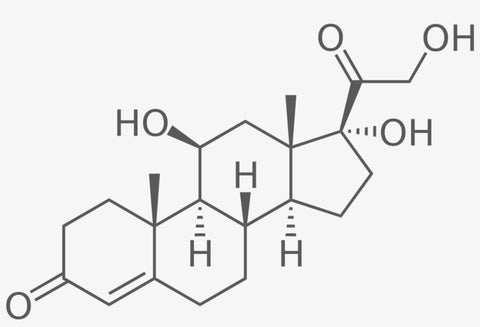Ingredient Spotlight: KSM-66 Ashwagandha

Stress is a part of daily life and can manifest itself in many forms. Some forms of stress are not only necessary but actually beneficial, such as resistance training and other forms of intense physical activity. When stress goes “bad” is when our bodies are in a chronic state of low level stress, which is usually due to various psychological factors (e.g. work, relationships, finances, etc.).
When in this chronically stressed state, the body’s stress hormone -- cortisol -- remains elevated and never returns to baseline. This is known to have a number of unwanted effects on the body, including:
- Impaired energy metabolism and nutrient partitioning
- Increased protein breakdown
- Decreased protein synthesis (i.e. less gains from your training)
- Poor feelings of mood and well-being
- Disrupted sleep
- Increased fat storage
- Decreased fat burning
One of the biggest disruptions to your metabolic machinery that arises from chronically elevated cortisol levels is in regards to your hormone levels. Testosterone in particular is adversely affected by chronically elevated cortisol levels.

In fact, research has shown that an inverse relationship exists between cortisol and testosterone, meaning that when cortisol levels are high, testosterone levels are low, which can seriously hinder your ability to perform in the gym and build muscle.
Studies have also found that high cortisol levels play a critical role in blocking testosterone’s influence on competition and domination.[1]
As such, if you’re looking to optimize performance, recovery, and overall quality of life, getting a hold on cortisol and lifestyle stress is a must.
How do you do that?
Truthfully, it entails a multifactorial approach, beginning with analyzing your daily life and seeing what the key factors of stress are in your life and seeing what you can do to remedy those particular situations.
For instance, if you’re constantly getting peeved off about traffic delays on the way to work, try using an alternate route. If you’re in a toxic relationship, either confront the individual about the issues and find a way to navigate them, or you may need to end the relationship altogether.
Another key thing to helping keep cortisol in check is to make sure you’re getting enough quality sleep each night. Sleep deprivation is a tremendous stressor to the body and is known to increase cortisol levels and decrease testosterone levels. Make it a goal to get 7-9 hours of quality sleep each and every night.
Yet another thing you can do to help keep cortisol in check is to make sure you’re consuming adequate carbohydrates, especially around your training. Intense exercise creates a spike in cortisol levels, which can benefit your training as it increases awareness and fuel mobilization, however after training, you want to lower cortisol levels.
Consuming carbohydrates causes insulin levels to rise, which helps lower cortisol as well as support glycogen repletion, muscle recovery, and growth!

Finally, you can also look into supplements that are known to help combat stress, such as KSM-66 Ashwagandha.
Ashwagandha is a staple plant of ayurveda that has a long history of use as an adaptogen -- plants that enhance the body’s ability to perceive, interact, and recover from stress.
Numerous studies have been carried out using KSM-66 and found that it is beneficial for reducing stress and anxiety in adults, improving sleep quality, aiding muscle performance and recovery. It’s even been found to support healthy testosterone levels!
For these reasons (and more), we’ve included a full 600mg of ashwagandha in every serving of our top-rated testosterone support complex -- AlphaMax.
AlphaMax utilizes a multi-pronged approach to support hormone production, boost performance, and enhance recovery helping athletes of all walks of life take their results to the max!
References
- https://www.journals.elsevier.com/hormones-and-behavior
Get AlphaMax For 10% OFF With Code Alpha10




Leave a comment